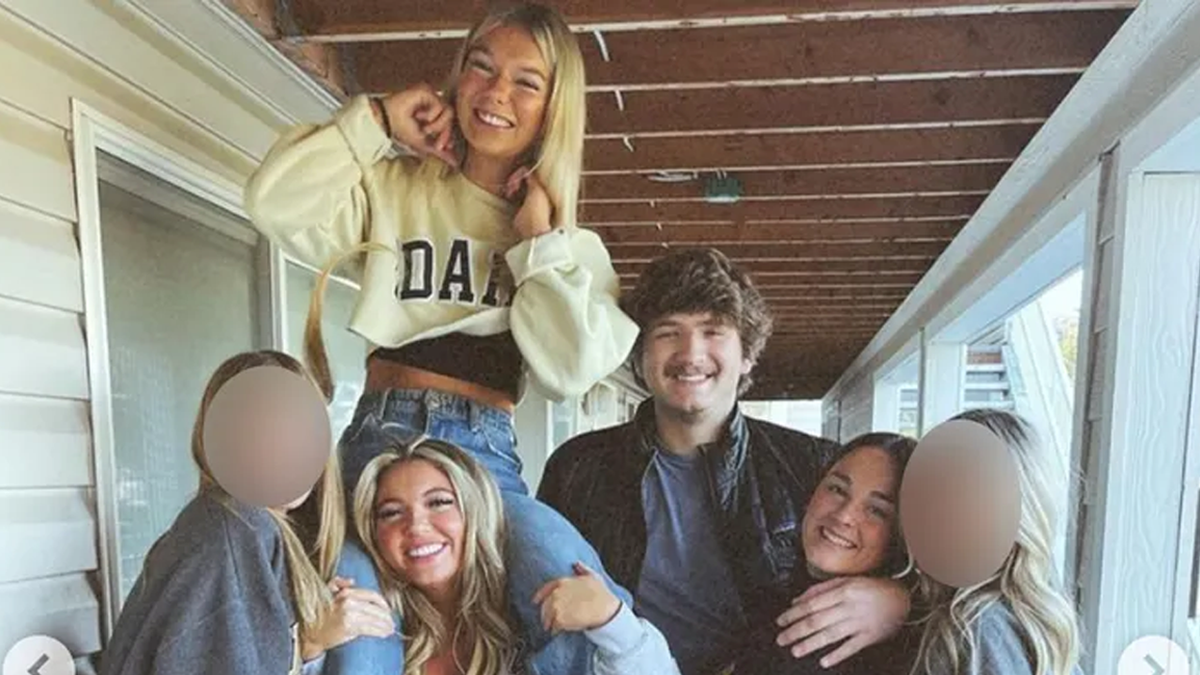NEWYou can now listen to Fox News articles!
The Menendez brothers, who gunned down their parents from behind in their Beverly Hills mansion in 1989, were sentenced to life without parole years later.
They were never supposed to see the light of day again.
But under new California law – and in an increasingly left-wing state – that changed. A judge reduced their sentences and made them immediately eligible for parole after a controversial hearing this year, kickstarted by a prosecutor who failed his re-election bid largely because critics viewed him as too soft on crime.
For one former investigator, that’s a bad omen for the victims of Bryan Kohberger, a criminology Ph.D. student who killed four University of Idaho undergrads in a home invasion stabbing spree.
BRYAN KOHBERGER PLEADS GUILTY TO IDAHO MURDERS
“He’s playing the long game in this plea deal,” said Dr. Kris Mohandie, a forensic psychologist whose past work includes cases involving O.J. Simpson and the North Hollywood bank robbery shootout. “If you take death off the table, he’s virtually got no skin in this game, meaning there’s no downside for him.”
Kohberger agreed to a plea deal last week. He admitted to stabbing each student multiple times in a premeditated attack but did not explain himself.
It saves taxpayer money and required Kohberger to forfeit his right to appeal his conviction and to move for a future sentence reduction. The end result could be a substantially stricter outcome than what a trial could have delivered.
PLEA CAPS YEARSLONG QUEST FOR JUSTICE

Not only are juries unpredictable – Kohberger would likely have spent decades appealing a conviction and death sentence – but Idaho also falls under the federal government’s historically liberal Court of Appeals, the Ninth Circuit.
While the parents of victims Ethan Chapin, 20, and Madison Mogen, 21, have publicly supported the plea deal, Kaylee Goncalves’s family called the potential death penalty “merely an illusion” in a scathing statement voicing their opposition to any leniency or deal for Kohberger.
The 20-year-old Xana Kernodle’s family did not respond to messages seeking comment.
Giving up his right to an appeal could also wind up being an illusion, years down the road, Mohandie warned.
SIGN UP TO GET THE TRUE CRIME NEWSLETTER
“Look at all these high-profile cases that we’ve seen come up lately, after many years,” he told Fox News Digital. “The long game is, we’re not going to be able to appeal this case – but the truth is, there’s always some reason to find down the road when laws change, case law changes, etc.”
Kohberger and his lawyers all know that, he said.
He pointed to the Menendez brothers, the Manson family and Scott Peterson.
“Convicted, sentenced to death, some of them, commuted, then they’re up – begging for parole,” he said.
GET REAL-TIME UPDATES AT THE FOX NEWS TRUE CRIME HUB
Victims get old and die. Public tempers cool off. For the Menendez brothers, the victims’ relatives are also their own relatives.
Only one uncle, Milton Andersen, remained publicly opposed to their release. He died just days before the judge reduced their sentences, at the age of 90.
Kohberger, who pleaded guilty last week, is due in front of Judge Steven Hippler later this month for formal sentencing.
On Nov. 13, 2022, the four victims were stabbed to death in a 4 a.m. massacre in an off-campus house in Moscow, Idaho. All but Kernodle may have been asleep at the start of the attack.
FOLLOW THE FOX TRUE CRIME TEAM ON X
There is no known motive and rampant speculation about what happened. More than six weeks later, police announced the arrest of Kohberger – at his parents’ home in Pennsylvania’s Pocono Mountains. He was 28 at the time and a student at Washington State University, 10 miles from the crime scene, where he was studying for a Ph.D. in criminology.
At the bloody crime scene, police found one key piece of evidence – a forgotten knife sheath with Kohberger’s DNA on the snap.
While his background raised questions and red flags, the deal is not expected to provide any answers.
“I think it’s a big mistake not to insist that he come clean with what he did, because then, down the road, he could always say, ‘I never admitted anything. It was just circumstantial. I was forced to do this,’” Mohandie said.
Prosecutors could have demanded answers as part of the deal, but it’s unclear whether Kohberger rejected an explanation or one hadn’t been part of the negotiations.
In response to left-wing sentencing reduction laws, other states have moved in the opposite direction. Tennessee passed a “truth in sentencing” law in 2022 to ensure that suspects face the penalties that state law prescribes for violent crimes – and so victims can find justice and peace without the threat of a surprise reversal down the road.
“Time will only be on his side,” Mohandie said of Kohberger, who is expected to serve four consecutive life sentences, plus another 10 years.
But prison carries other risks.
Read the full article here

